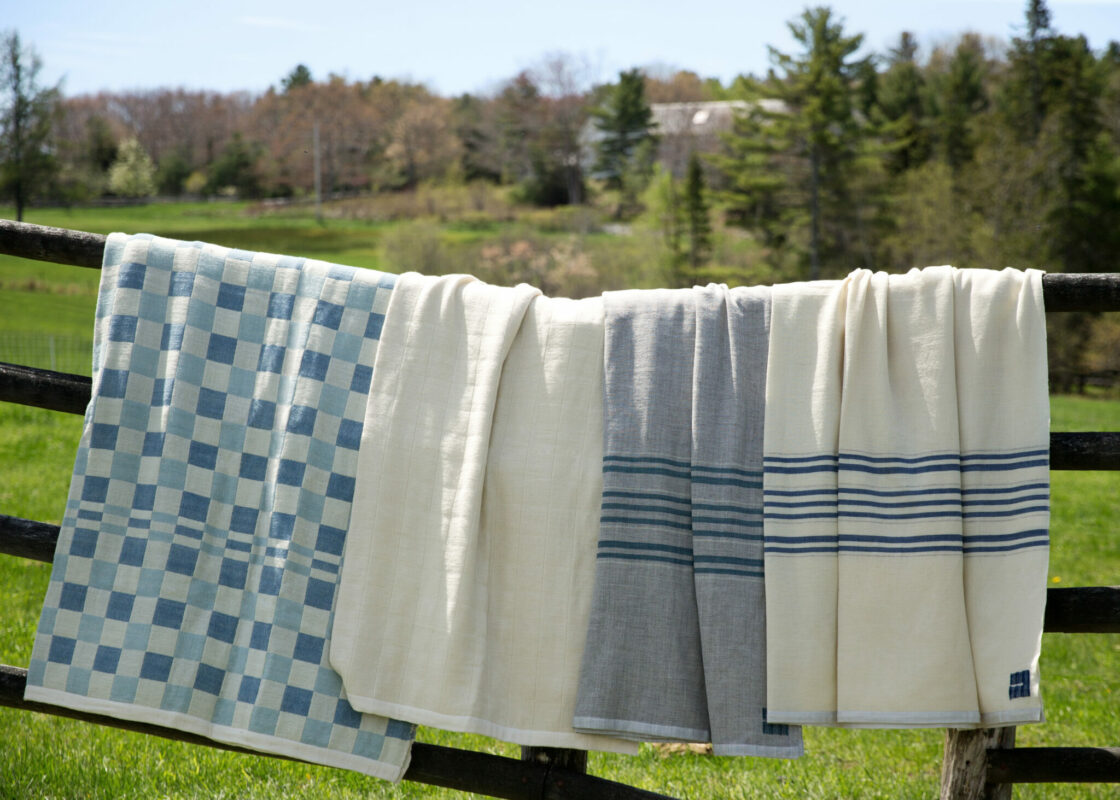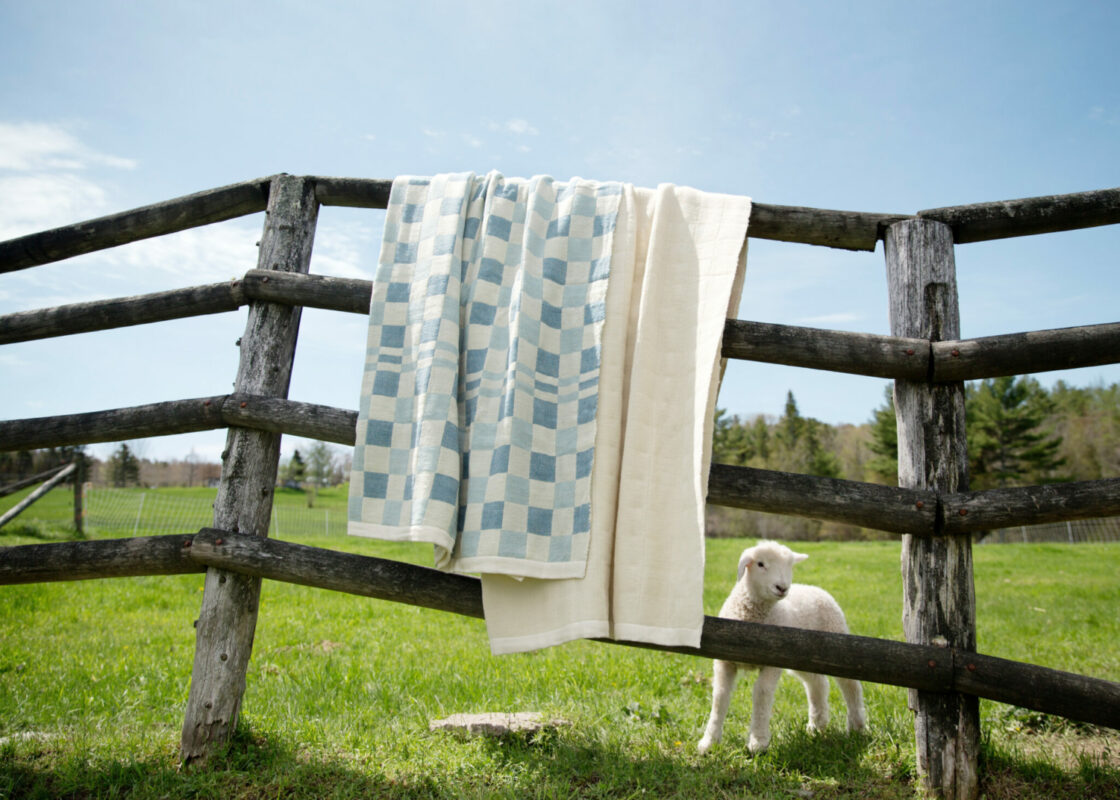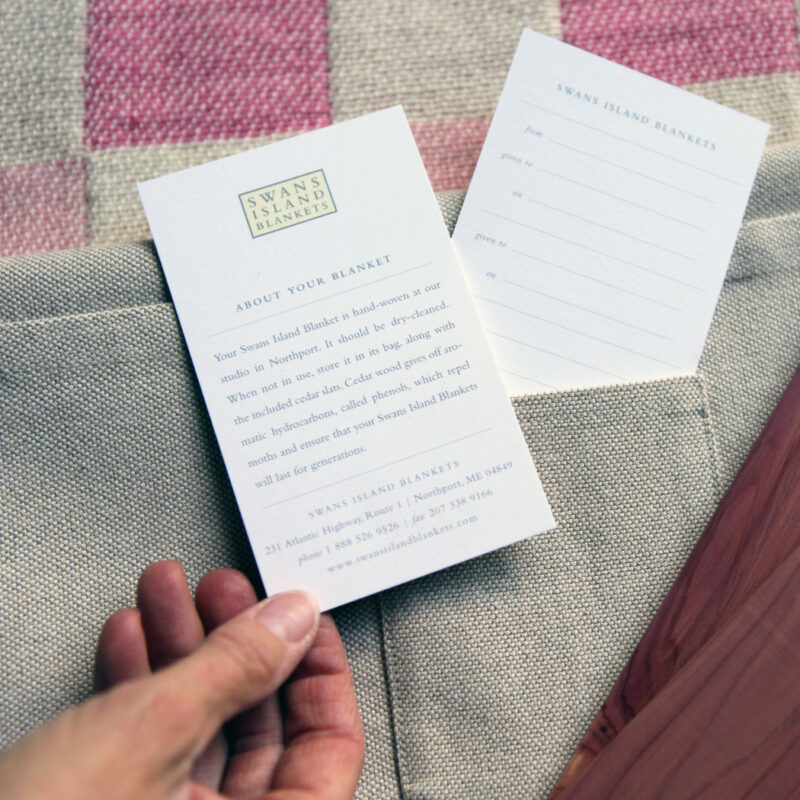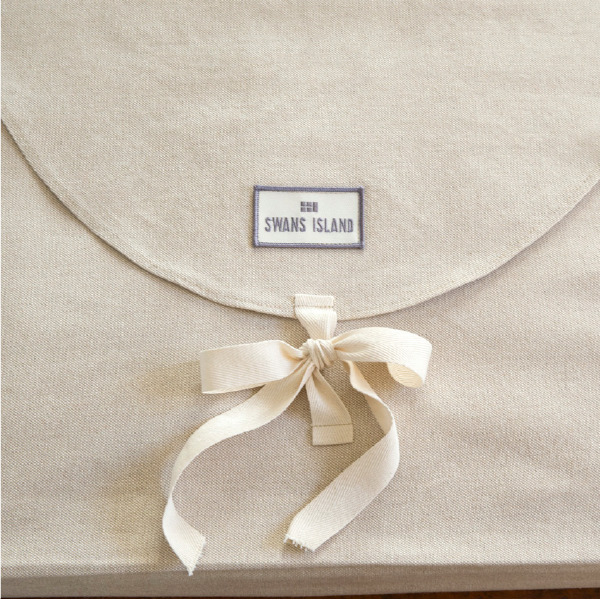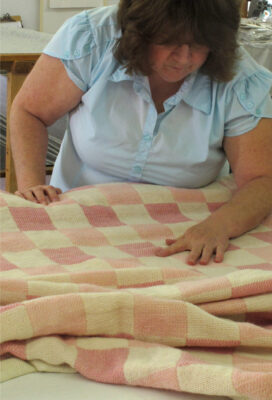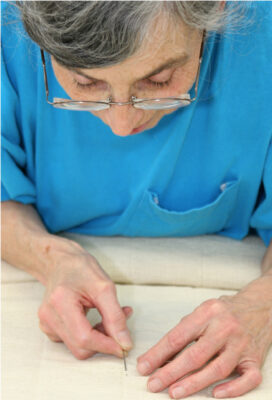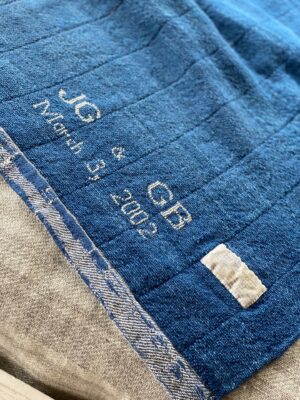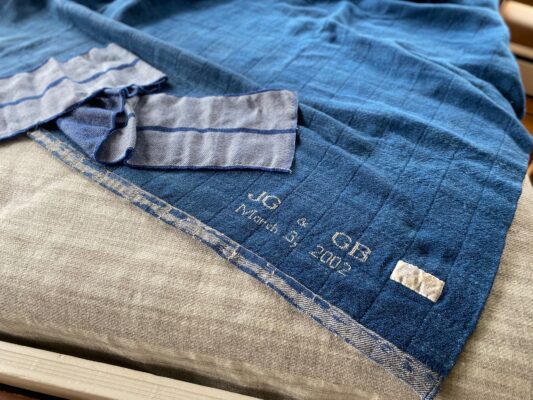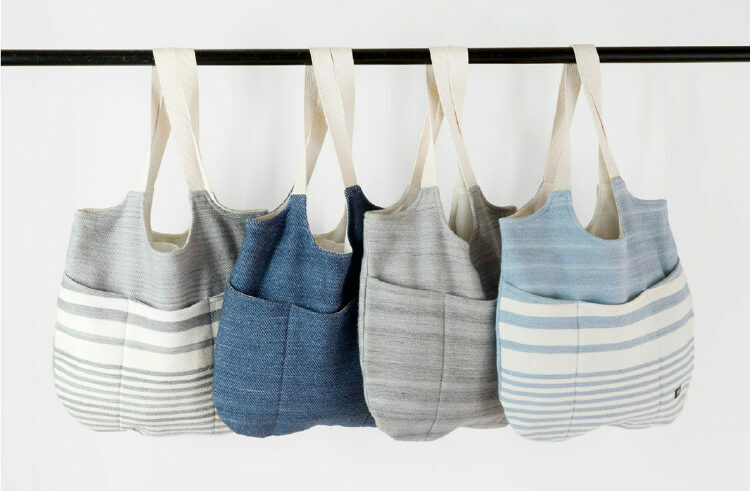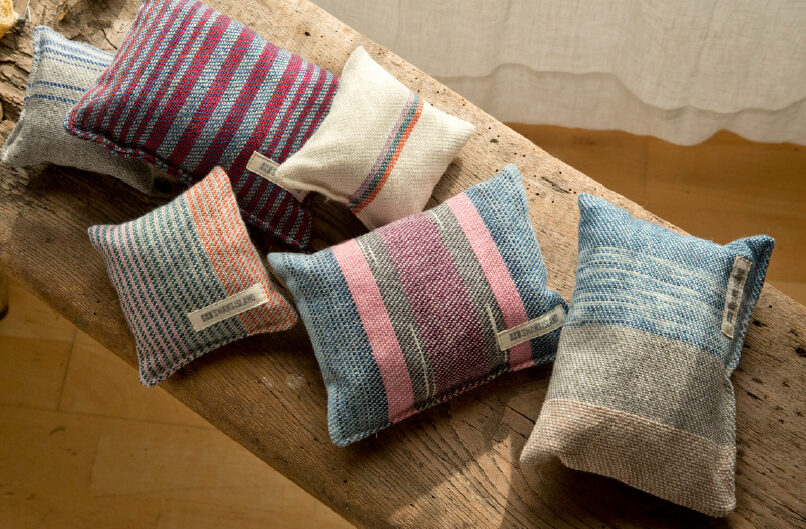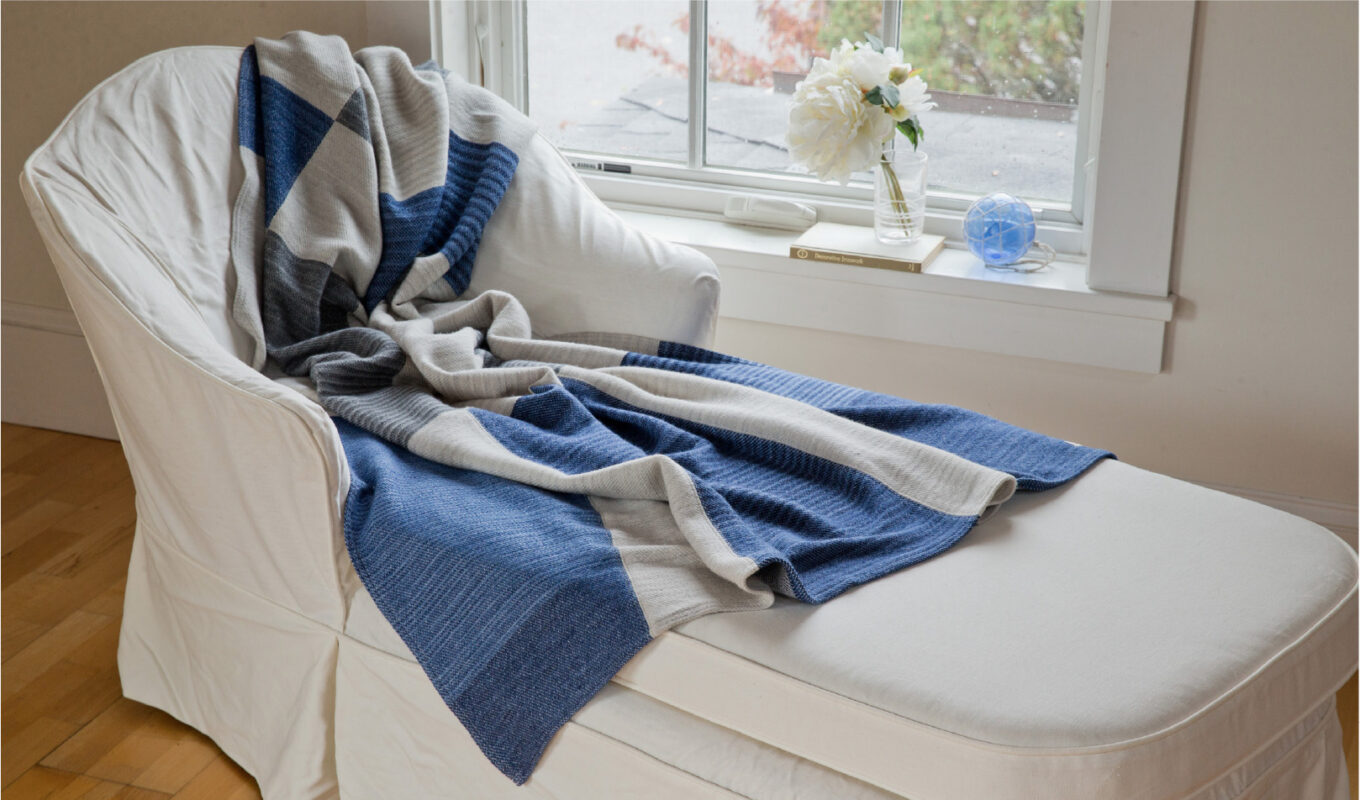Behind the Scenes
Sustainability Comes Naturally At Swans Island
Commitment to Sustainability
Sustainability comes naturally at Swans Island Company. It’s in our blood. When we first started producing handwoven blankets thirty years ago it was with the idea of making the lifecycle of our products from beginning to end with as much intentionality as possible. We continue making the same blankets with great care and thoughtfulness today. We really start at the end of the cycle and work backwards by asking ourselves “What kind of lifecycle should our products have?” Our intention is that our products’ end-of-life should be counted in generations, not years.
In 2018 Americans sent over 17 million tons of textile trash to landfills where it can take up to two hundred years to decompose. This is to say nothing of the waste stream caused in the making of those textiles. Our intention at Swans Island is to add little to none to that huge pile of garbage lurking beneath us. The true cost of offshore production efficiencies and low-cost textiles is clearly not reflected in the price tag one sees at the store.
“The true cost of low-cost textiles is clearly not reflected in the price tag one sees at the store.”
Reminiscent of an era when people mended and handed down precious household items, we design our blankets with longevity in mind. While we hope that our loyal customers will return to us one day to make another blanket purchase, we design our handwoven blankets to last for generations. Not perhaps the savviest capitalistic stance to take, but we feel it’s the right way to make a product.
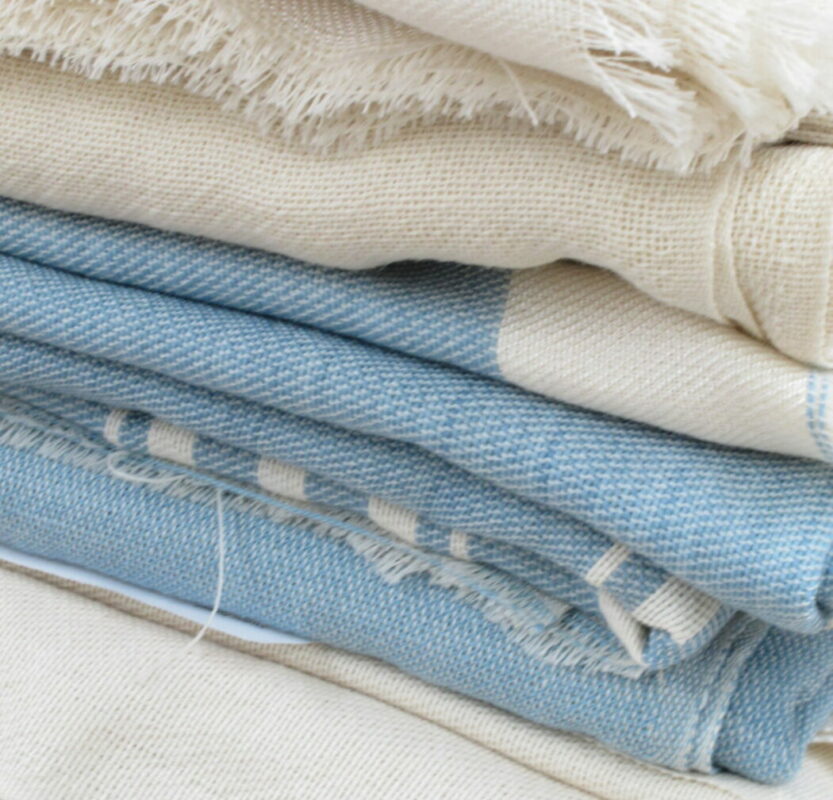
Long and Well-loved Lives
Linen storage bags with refreshing cedar keep your blanket safe. Our handwoven blankets come in their own linen storage bags lined with moth repellent cedar planks to keep your blanket safe, even if it’s being stored on a shelf. Stitched by our seamstresses, each bag has a pocket on the front which holds a provenance card where you may record the original purchaser and whom it will be handed down to next. From the outset our blankets are meant to have long and well-loved lives.
Safe Cleaning
We use organic Yarns and organic soaps. We offer an organic cleaning service should one not want to go the dry-cleaning route. Caustic chemicals used in dry cleaning can cause natural wool fibers to lose their natural oils and become less lustrous over time. If you send your blanket back to us, we will carefully wash it in organic soap and return it to you fully refreshed—no chemicals needed.
“If you send your blanket back to us, we will carefully wash it in organic soap and return it to you fully refreshed.”
Blanket Hospital
At our blanket hospital we repair rather than replace. If, despite the best of intentions, one’s blanket becomes injured in any manner, we have a blanket hospital that can suture up any wound inflicted by the cruel world. We’ve seen everything from dog-chewed holes to general wear and tear from age and use. We also provide out-patient care should your blanket just need a little freshening. We recently received a blanket that was purchased from us over twenty years ago. Our incredible finishing team applied new silk bindings, cleaned and de-pilled the whole blanket and sent it back to its loving owners looking as good as the day of its original departure.
“We have a blanket hospital that can suture up any wound inflicted by the cruel world.”
“Farm-to-Table” for Blankets
As much thought has gone into the beginning and middle of the production cycle as we have given to the end result. We liken it to the farm-to table movement… only for blankets. We begin with natural fibers. Much of our fiber comes from certified organic sources and from small family farms. It is spun locally. Animal fibers are by definition sustainable, naturally reoccurring materials. Sheep provide a source of fiber and protein and are being used more and more in place of mechanical means of mowing, just as they were before mechanical mowing ever existed.
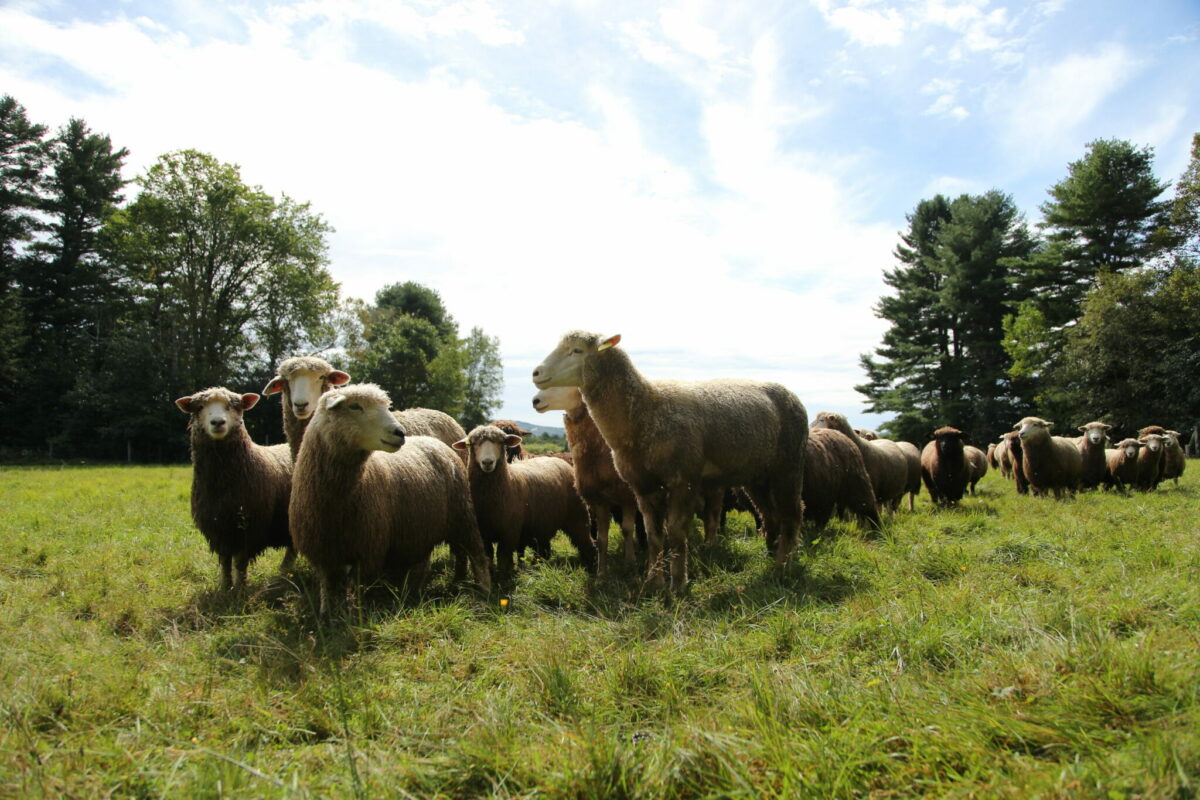
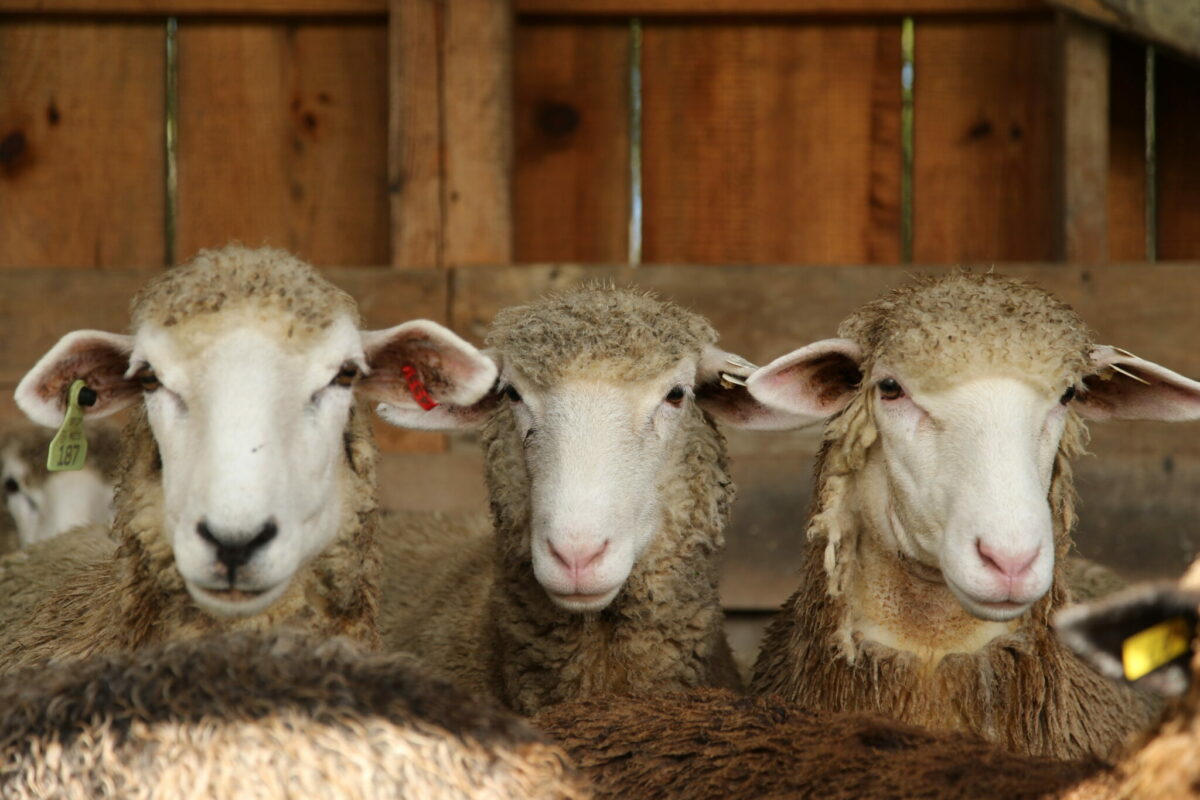
Our yarns are processed from fleece with minimal inputs. We dye in small batches, returning our excess dye water to the drain field to be filtered and then to join the groundwater supply. We utilize over 99% of the yarn we purchase. Our looms are essentially powered by the hands and arms of our weavers. Sustainability comes naturally in all that we do.
“Our looms are essentially powered by the hands and arms of our weavers.”
Waste Not Want Not
We turn leftover textiles into beautiful products. We used to discard the few inches of buffer we weave in between each blanket. We now create sachets out of that material. Some of our products are woven off-site on industrial looms. We receive panels of fabric from which we stitch blankets and throws. The remnants from this process are made into bags and stitched together to create “upcycled” throw blankets. We make our Artisan Patchwork knit throws out of leftover “odds and ends’ ‘ of yarn—literally the odd leftover bits of yarn and the ends of the lot that didn’t get used in a larger production run.
We recently received a package from a customer that told a sad tale. A knit ruana had mistakenly been machine washed and dried on hot. The result was a much smaller and tighter version of the original. What if anything, she pleaded, could be done about it? Well…even Swans Island can’t reverse the ravages of the felting process. However, we were able to cut and stitch together a very nice clutch for her out of this mangled cloth. Just going to show that ingenuity and a commitment to sustainability can weave magic out of a mess.
Making heirlooms (loomed products for oneself and one’s heirs) in practice means that Swans Island products are of a caliber that one hopes would never see the inside of a landfill. Extrapolate the cost of one of our products over the span of generations and the investment takes on a whole different perspective. Add to that the savings to the environment and one has a purchase that feels right and prescient.
